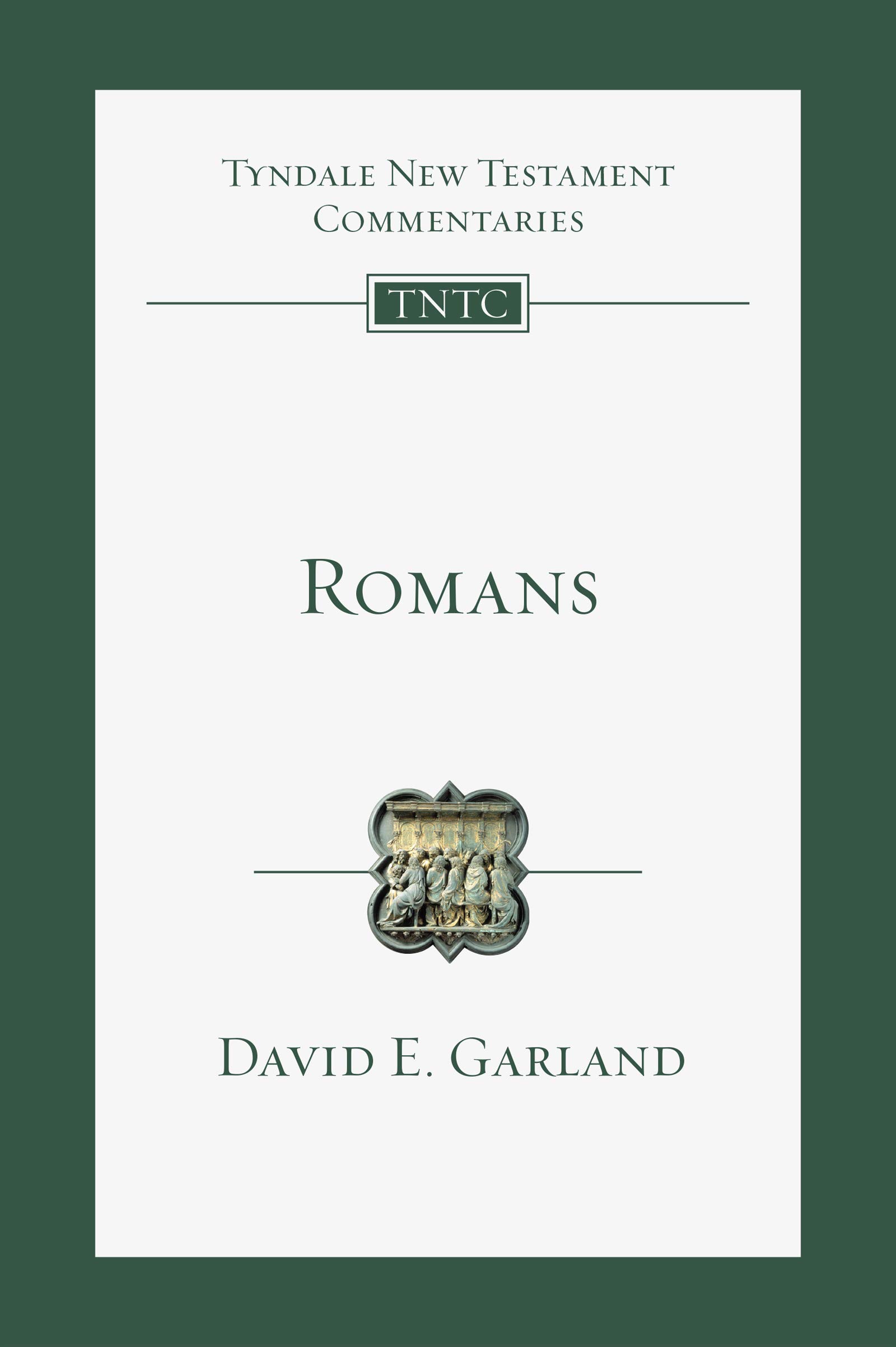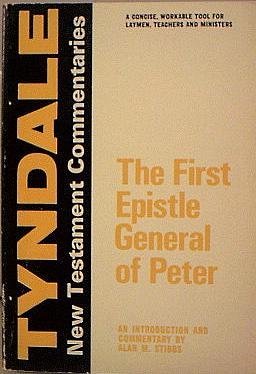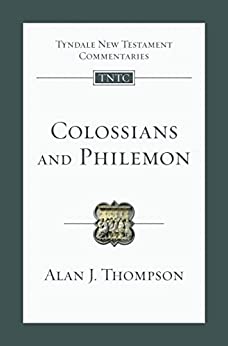


Books in series

Matthew
An Introduction and Commentary
1986

Mark
1961

Luke
1974

John
2008

Acts
An Introduction and Commentary
1980

Romans
1963

Romans
An Introduction and Commentary
2021

The First Epistle of Paul to the Corinthians
1958

2 Corinthians (Tyndale New Testament Commentaries)
1987

Ephesians
1963

Colossians and Philemon
1987

1 and 2 Thessalonians
An Introduction and Commentary
1958

The Pastoral Epistles
An Introduction and Commentary
1957

Hebrews
1983

1 Peter
1988

2 Peter & Jude
1968

The Letters of John
An Introduction and Commentary
1964

The Book of Revelation
1987

The First Epistle General of Peter
1971

John
An Introduction and Commentary
1960

Epistle to the Hebrews
1960

NTC
Galatians
1994

Colossians and Philemon
An Introduction and Commentary
2022
Authors

Paul commonly known as Paul the Apostle and Saint Paul, was a Christian apostle who spread the teachings of Jesus in the first-century world Generally regarded as one of the most important figures of the Apostolic Age, he founded several Christian communities in Asia Minor and Europe from the mid-40s to the mid-50s AD. The main source of information on Paul's life and works is the Acts of the Apostles book in the New Testament, with approximately half of its content documenting them. According to the Acts, Paul lived as a Pharisee and participated in the persecution of early disciples of Jesus, possibly Hellenised diaspora Jews converted to Christianity, in the area of Jerusalem, prior to his conversion. Some time after having approved of the execution of Stephen, Paul was traveling on the road to Damascus so that he might find any Christians there and bring them "bound to Jerusalem". At midday, a light brighter than the sun shone around both him and those with him, causing all to fall to the ground, with the risen Christ verbally addressing Paul regarding his persecution. Having been made blind, along with being commanded to enter the city, his sight was restored three days later by Ananias of Damascus. After these events, Paul was baptized, beginning immediately to proclaim that Jesus of Nazareth was the Jewish messiah and the Son of God. He made three missionary journeys to spread the Christian message to non-Jews communities in Asia Minor, Greece, Macedonia, Cyprus, Judea and Syria, as narrated in the Acts. Fourteen of the 27 books in the New Testament have traditionally been attributed to Paul. Seven of the Pauline epistles are undisputed by scholars as being authentic, with varying degrees of argument about the remainder. Pauline authorship of the Epistle to the Hebrews is not asserted in the Epistle itself and was already doubted in the 2nd and 3rd centuries. It was almost unquestioningly accepted from the 5th to the 16th centuries that Paul was the author of Hebrews, but that view is now almost universally rejected by scholars. The other six are believed by some scholars to have come from followers writing in his name, using material from Paul's surviving letters and letters written by him that no longer survive. Other scholars argue that the idea of a pseudonymous author for the disputed epistles raises many problems. Today, Paul's epistles continue to be vital roots of the theology, worship and pastoral life in the Latin and Protestant traditions of the West, as well as the Eastern Catholic and Orthodox traditions of the East. Paul's influence on Christian thought and practice has been characterized as being as "profound as it is pervasive", among that of many other apostles and missionaries involved in the spread of the Christian faith.

N. T. Wright is the former Bishop of Durham in the Church of England (2003-2010) and one of the world's leading Bible scholars. He is now serving as the chair of New Testament and Early Christianity at the School of Divinity at the University of St. Andrews. He has been featured on ABC News, Dateline NBC, The Colbert Report, and Fresh Air, and he has taught New Testament studies at Cambridge, McGill, and Oxford universities. Wright is the award-winning author of Surprised by Hope, Simply Christian, The Last Word, The Challenge of Jesus, The Meaning of Jesus (coauthored with Marcus Borg), as well as the much heralded series Christian Origins and the Question of God. He also publishes under Tom Wright.


Saint Peter also known as Peter the Apostle, Simon Peter, Simeon, or Simon was one of the Twelve Apostles of Jesus Christ and one of the first leaders of the early Christian Church. He appears repeatedly and prominently in all four New Testament gospels as well as the Acts of the Apostles. According to Christian tradition, Peter was crucified in Rome under Emperor Nero. The ancient Christian churches all venerate Peter as a major saint and as the founder of the Church of Antioch and the Church of Rome, but they differ in their attitudes regarding the authority of his successors. According to Catholic teaching, Jesus promised Peter a special position in the Church. In the New Testament, the name "Simon Peter" is found 19 times. He is the brother of Saint Andrew, and both were fishermen. The Gospel of Mark in particular was traditionally thought to show the influence of Peter's preaching and eyewitness memories. He is also mentioned, under either the name Peter or Cephas, in Paul's First Letter to the Corinthians and the Epistle to the Galatians. The New Testament also includes two general epistles, First Peter and Second Peter, that are traditionally attributed to him, but modern scholarship generally rejects the Petrine authorship of both.[8] Nevertheless, Evangelicals and Catholics have always affirmed Peter's authorship, and recently, a growing number of scholars have revived the claim of Petrine authorship of these epistles. Catholic and Orthodox tradition accredits him as the first bishop of Rome—or pope—and also as the first bishop of Antioch. Based on contemporary historical data, his papacy is estimated to have spanned from AD 30 to his death, which would make him the longest-reigning pope, at anywhere from 34 to 38 years; however, this has never been verified. Saint Irenaeus explains the Apostle Peter, his See, and his successors in book III of Adversus Haereses (Against Heresies). In the book, Irenaeus wrote that Peter and Paul founded and organized the Church in Rome. Sources suggest that at first, the terms episcopos and presbyteros were used interchangeably, with the consensus among scholars being that by the turn of the 1st and 2nd centuries, local congregations were led by bishops and presbyters, whose duties of office overlapped or were indistinguishable from one another. Protestant and secular historians generally agree that there was probably "no single 'monarchical' bishop in Rome before the middle of the 2nd century...and likely later." Outside of the New Testament, several apocryphal books were later attributed to him, in particular the Acts of Peter, Gospel of Peter, Preaching of Peter, Apocalypse of Peter, and Judgment of Peter, although scholars believe these works to be pseudepigrapha.


